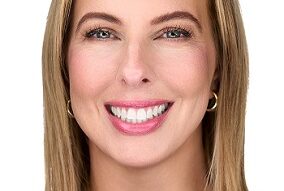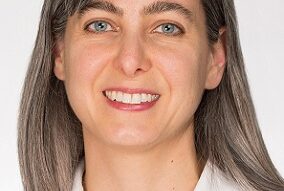Growing up, Chad Firsel helped around his father’s real estate law firm, working his way up from making copies and billing to practically performing the duties of a law clerk. “I realized I didn’t want to be a lawyer,” Firsel said. “There’s a lot of sitting around and arguing and typing.”
Eventually, Firsel found his way into investment brokerage. He’s had several stops along the way in his career, including the launching of his own firm in 2010, Quantum Real Estate Advisors. And it’s been a celebrated career, one that landed him on Midwest Real Estate News’ 2018 Hall of Fame.
Tell me about your journey from Baum Realty to NAI Hiffman and then to Quantum. What led you to leave a national practice and launch your own brokerage?
I started out at Millennium Properties, which is still around and I was doing everything. I would sell 200 units that were Section 8 housing and the next day I would sell a shopping center then an office building. We were sort of generalists, working a lot with the bankruptcy courts. Then I was doing a deal with a friend of mine, Doug Baum, and he said, “Hey, we’re a young firm, we represent these retailers, we’re bringing value to these owners, but we don’t have a true investment guy. How about you come over, we’ll make you a partner we’ll create an investment practice and you’ll run it?” I did and that’s where I really started to elevate my career.
And then from Baum Realty Group I was going to go out on my own because I felt I had outgrown that practice. Then a buddy at NAI Hiffman said, “Hey, Chad, you just did that at Baum, we have the same mission. We have all these leasing brokers, but we don’t have an investment practice.” So I did it again. I’m a glutton for punishment I guess. I managed our front office, I was a managing director and executive vice president and I also managed our group, so I had a lot of responsibility. But the real reason I didn’t love that position is because I was spending a lot of my time on management and frankly I just wasn’t getting paid for it. And I love real estate; I love doing deals and it took away from that.
So when I started Quantum, my mantra was I don’t want to manage, I want to deals. If people are going to be with me, they need to manage me. They need to manage up, they need to be self-sufficient, they need to be A players and they need to execute. I’m not out here to babysit them I have to babysit my deals. Now we’re a little over nine years old, we have four brokers we have six on staff, last year we closed almost 70 deals. That’s why I left, I could be solely focused on sales. We’re a boutique shop because we just want to focus on the deal and our client and really avoid any distraction or any inefficiency with our business.
How has the industry changed over the course of your career? Have the needs of your investment clients evolved over time?
The biggest thing that has changed is the availability of knowledge. Knowledge in our business is the inefficiency that creates opportunity. The less available the knowledge is, theoretically, the more opportunities there are. The more available that knowledge, the more saturation, the more people are on it and there’s less opportunity. So the thing I point to first and foremost is that technology has absolutely changed this business. It has increased the buyer pool where now the mom and pop that was afraid to own a little out lot Starbucks that had never really invested in real estate directly, they now do that. Now, real estate s a commoditized component whereby private individuals can now own commercial real estate because there’s more information, they’re less intimidated, they’re less fearful about the investment. Even the transaction process used to be very daunting and overwhelming; before we’d have to sign documents and FedEx them, now all we do is rip emails back and forth and we can set something up in hours as opposed to weeks.
The other thing technology has done is it brought pricing down. We’ve seen a little different correlation from interest rates to cap rates because there’s so much demand. The all -cash buyer is not subject to the fluctuation of interest. That’s changed a lot and it’s just a little different world right now.
I understand that mentorship is important to you. Who were some of your mentors and what lessons are you looking to pass on to the next generation?
I wouldn’t say I had one mentor I’d point to. I think I’m more of a person that has been more of a sponge and observed what I like and what I don’t like as best practices. Whether that’s partners at former brokerages or whether it’s clients. I learn a lot from and I have very strong relationships with clients; some of them I’m very close with and we’ve been to each other’s weddings. But I never really had a senior mentor; I’m very much self-taught. I guess my mentorship came in doing deals and observation of certain good people along the way.
The lessons I want to pass on as a mentor are everything from basic professional, social acumen all the way down to proper underwriting habits. Frankly, what I call bringing the ball over the goal line. You just see people doing 80 percent of the work and you don’t get credit for doing 80 percent. We have a mantra that we’re 100 percent operators. Bring the ball over the goal line, score the touchdown. That’s what I mentor. You’ve got to have a foundation of focusing on the details in underwriting, from being slightly persistent to having good manners and being professional. Not pounding your head against the wall, but going around it—being creative with solutions.
Can you tell me a little bit about your philanthropic efforts?
I focus on three philanthropic endeavors. My wife, unfortunately is a cancer survivor. She got significant colon cancer at a very young age. So we are very involved with the University of Chicago and their oncology and GI programs. We also support the genetics program because I feel that gene therapy is going to be the next wave of solving this horrible disease. The second component that we focus on is I’m very involved with the Jewish United Fund. I’m proud of our contribution not only monetarily, but I also used to sit on the board. I go away with a group of gentlemen to Israel every year and we are very involved with helping the Jews not only here in America but also in Israel. And the third philanthropic group that I focus on is called EB Research Partnership. EB is a horrible disease—the worst disease that you’ve never heard of. It’s a significant deterioration of the skin that people are born with and the life expectancy in under 30 years of age. We have a very close family friend whose daughter has it so my wife and I both stood on that board and we give monetarily as well to that.
Are there any final thought you want to share with the real estate community?
If I had one thing I had to say, it’s that I’m very blessed and grateful that I’ve met amazing people in the business. I’m blessed and grateful that I wake up every day excited and ecstatic to go to work. Even though I’ve been in it for twenty years, I’m still young. The business have given back to me and I’m passionate about it. I love it and I would say I’ve never worked a day in my life.



